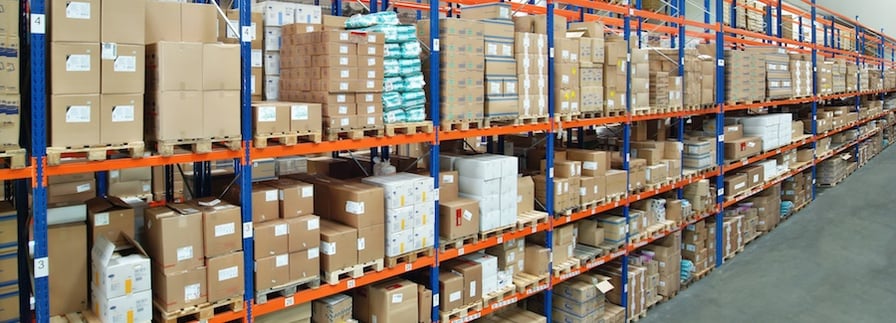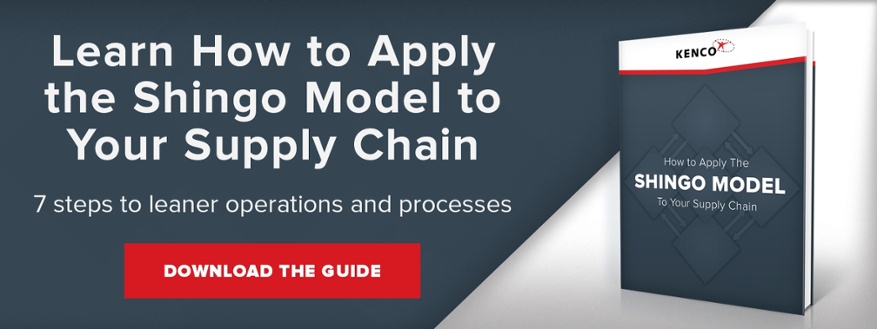
Whether we intend them to or not, our experiences form a lens through which we view the world. If we decide we know something well enough, we might take shortcuts or move too quickly through intricate tasks.
If we're hesitant about a decision, we may procrastinate and impact efficiency. On a personal level, these issues might manifest as trivial problems, such as a sink full of dirty dishes, or underestimating the amount of expertise a home repair requires.
On a professional one, however, the problems that arise are enough to throw a very large wrench into the works. Both instances are defused by the same technique, however: self-awareness, honest assessment, and forming––and implementing––an actionable plan.
In your warehouse, that technique is simply boosted to cover a team and facility.
It's Good Sense––and Compliance
An internal warehouse quality audit puts you in control of your facility, ensuring that inconsistencies and "waiting to happen" accidents can't escape your watchful eye.
In addition to being a good procedure for safety and efficiency's sake, many of these audits are also compelled by regulatory mandate or through industry standards, such as ISO standards 9001 and 13485. These regulations protect not only your staff and facility but the products making their way out onto the market; the only thing worse than a return is an entirely preventable return.
Too often, internal audits get pushed down on the managerial to-do list, or aren't completed to a satisfactory degree to get through them. While they can feel tedious at the moment, consider the amount of tedium that comes from post-accident or shrinkage reports––chances are, a regular audit suddenly looks a little more palatable.
Why Are Internal Warehouse Quality Audits So Necessary?
Internal audits catch considerably more than glaring issues, but often get a bad rap for being narrow in scope.
In reality, they are the perfect opportunity to spot-check process implementation without calling undue attention to what you're doing. If individuals in charge of a process know they're being observed, they might artificially tighten up operations and skew the results into a false positive.
On the flip side:
If they're only a small component in a larger scope, you're more likely to get an accurate read on parameters like quality results, adherence to instructions, safety rules, and time spent on the task.
The very presence of regular audits on your facility schedule will also serve as an incentive for staff to work diligently and honestly: if they know there's a set of eyes on the way, they'll act accordingly.
After all, it's considerably easier to find and fix problems voluntarily, when they only affect a handful of products, rather than as a consequence of discovering thousands of units or operational hours have been wasted.

Common Misconceptions About Internal Warehouse Audits for Quality
The term itself can provoke a slump of the shoulders or an internal sigh, but that's only because the misconceptions surrounding audits are stubbornly enduring.
The first step to embracing the power of the internal audit in your warehouse is putting these myths to rest:
Myth #1: Audits are just checking a box on a checklist.
This is a huge oversimplification of audits and could end up as a dangerous mindset in the wrong facility. While the appeal of the yes/no audit is obvious, if you really want to optimize and improve your facility, each question needs to have a proverbial essay option. Additionally, if you're getting "100%" on your audits, chances are they're too shallow or were designed around the status quo, rather than vice-versa. Site internal audits should have notes and a range of good/bad responses––otherwise, the audit is simply a one-way conversation without much room for growth.
Myth #2: Audits are just document reviews.
While it's true all standard operating procedures on your site should have a review every year or two, a document does not an audit make. You'll use the document during the audit, of course, but you should also reference it ahead of time, during the preparation stage. The best course of action is to walk through the process without a paper in hand, learning and absorbing while focusing on the reality of the work––not just the document, itself. Afterward, you can compare your live notes to the procedure laid out in the document and determine where gaps appear.
Myth #3: Audits are difficult or complex.
Like anything else in your warehouse, they're only as difficult as you create them to be. You don't need to weigh down the straightforward task of an assessment with charts and graphs; just follow a box of product from end-to-end of your process. This will allow you to see every aspect of your workflow in its "natural element," and avoid disrupting the work or introducing accidental bias in your actions and reactions. If you aren't sure where to start or feel stuck mid-assessment, don't hesitate to talk to your staff: chances are, they'll be happy to weigh in on what their tasks and timing really feel like.
Myth #4: Only the QC department does audits.
If you happened to spot a fire in an office trash can, would you shrug and leave it to the fire department? Of course not! You would attempt to put it out. Issues in your warehouse aren't departmental when they affect everyone––anything that affects your end client or customer becomes everyone's problem, period. Yes, we can target specific assessments within a department, but that doesn't mean only one department performs audits company-wide. Use assessments as an opportunity to demonstrate different areas of the company and highlight their contributions to their distant co-workers. The result will be a well-examined, optimized, and team-ready workplace you can count on for compliance.
To Sum It Up
Examining actions, motivations, and shortcomings is almost always a little uncomfortable at first, but in both your private and professional life, it's an action that pays off.
If you want to dig deep and figure out if your warehouse truly works towards your goals, don't miss our Embracing Lean Warehousing eBook and powerful Shingo Model offer.
Together, they'll make your assessments easier, and your company warehouse stronger than it's ever been.


